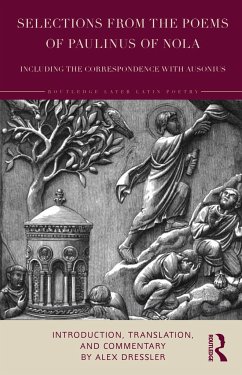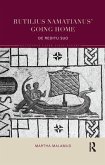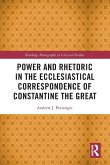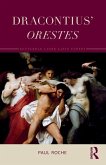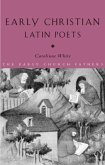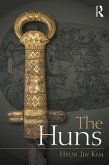This volume offers a broad introduction to one of the most exciting chapters of Late Antiquity through direct testimony from one of the last representatives of Roman Antiquity, Ausonius of Bordeaux, and his radical Christian protégé, the populist bishop and experimental poet Paulinus of Nola.
The first comprehensive volume in English dedicated to these works in over a century, this book also offers representative selections from Paulinus' vast poetic output, from the publicly performed poems that mark his contribution to the emerging cult of the saints to his experimental Christianization of a wide range of Classical genres. Preceded by a substantial introduction discussing the modern significance of these works and their original contexts, the translation is accompanied by running notes for ease of reference and an interpretive commentary rich with illustrative parallels. Taken together, the correspondence with Ausonius and the selections from Paulinus epitomize the personal, political, and spiritual conflicts of their age, offering a lively and concentrated introduction to the life and thought of these two underappreciated contemporaries of Jerome and Augustine.
Accompanied by new and provocative interpretations with detailed but concise historical and biographical guidance, this accessible and stylish translation will appeal to scholars and students of Classics, Late Antiquity, religious studies, social history, and world literature.
The first comprehensive volume in English dedicated to these works in over a century, this book also offers representative selections from Paulinus' vast poetic output, from the publicly performed poems that mark his contribution to the emerging cult of the saints to his experimental Christianization of a wide range of Classical genres. Preceded by a substantial introduction discussing the modern significance of these works and their original contexts, the translation is accompanied by running notes for ease of reference and an interpretive commentary rich with illustrative parallels. Taken together, the correspondence with Ausonius and the selections from Paulinus epitomize the personal, political, and spiritual conflicts of their age, offering a lively and concentrated introduction to the life and thought of these two underappreciated contemporaries of Jerome and Augustine.
Accompanied by new and provocative interpretations with detailed but concise historical and biographical guidance, this accessible and stylish translation will appeal to scholars and students of Classics, Late Antiquity, religious studies, social history, and world literature.

